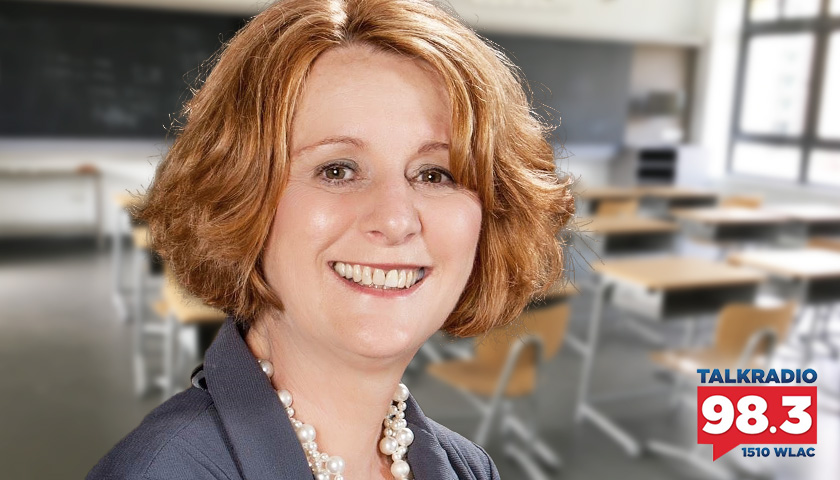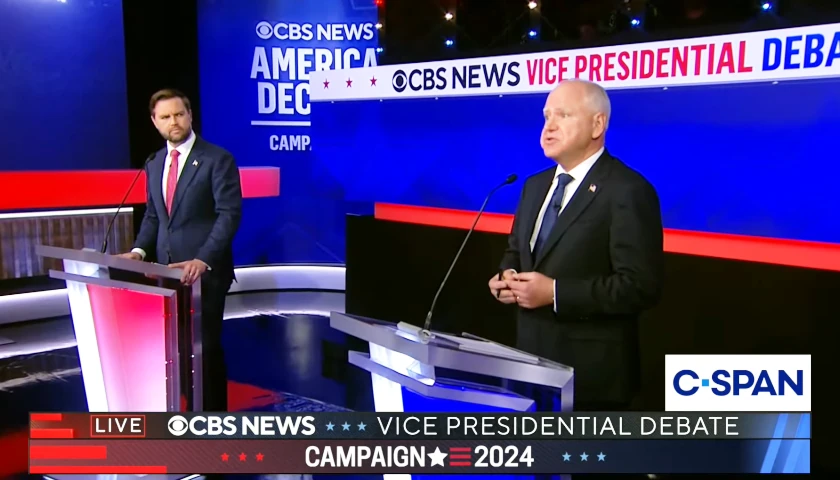Live from Music Row Friday morning on The Tennessee Star Report with Michael Patrick Leahy – broadcast on Nashville’s Talk Radio 98.3 and 1510 WLAC weekdays from 5:00 a.m. to 8:00 a.m. – host Leahy welcomed Bradley County, Tennessee Director of Schools Dr. Linda Cash to the newsmaker line to explain the mission and vision of the PIE Center and its innovation in work-based schooling.
Leahy: Right now on our newsmaker line, the director of schools in Bradley County, Dr. Linda Cash. Good morning. Dr. Cash.
Cash: Good morning. How are you in Nashville today?
Leahy: Well, we’re delighted to have you on. Bradley County, of course, is east of Chattanooga, about 108,000 people. You’ve been the superintendent of schools there for how long?
Cash: I am in my 8th year in Bradley County.
Leahy: Wow, that’s a good tenure. That’s a very good tenure. Now we want to talk to you about this Partnership in Education Innovation Center. Tell us a little bit about that.
We’re looking for success stories in K-12 public education, Dr. Cash, and I’m telling you they’re not a lot. And so I’m hoping you got a success story there to talk to us about.
Cash: Absolutely. Well, the Pie Center Partners in Industry and Education is a facility that’s 277,000 square feet. It was an old abandoned American uniform building for manufacturing and we bought it, our county commissioners bought it and purchased it about seven years ago.
And so the whole concept is we’re bringing education, industry, and business together under one roof so that we can change how we do high school. So in this building, you’ll have juniors and seniors who are on varied career paths so that they are going from K to J.
From kindergarten all the way to the job. So all of the pieces that are in here, it’s heavy in STEM with multiple operations, machining, welding, all of those things. But we also have a career residency that focuses on skilled labor. So that is going to be electrician, plumbing, heat, and air.
The people we can’t find any more to do the work we need to be done with high wages. But they actually come out with dual enrollment from two of our local universities, our schools, Cleveland State and then TCAT, Athens.
So we are partnering with them to do that. But we also have so many work-based learning opportunities. We have Center for Sports Medicine, we have restaurants, we have businesses, and they are also training our kids from the bottom up to learn skills and relationships.
So the kids come either morning or afternoon and they are on the go learning. So they get their theory and now they’re getting their hands on opportunities. The best thing is it’s the businesses and industries that are training them along with our educators so that they get that full look at where we’re going and what we’re doing.
High-paying jobs, we’ve had such success with our first partnership was with Wright Brothers Construction and they have actually hired the majority of our students that they’ve worked with. These kids have been trained to build roads and bridges and it’s just been a pretty successful story. We’re excited about it.
Leahy: So first set the background here. How many students are in the Bradley County school system?
Cash: We have about 10,000 students in the Bradley County school system. We have two very large high schools that will feed into the PIE Center. But we also are partnering with Polk County.
And in that sense, it’s a regional approach so that those students who don’t have a lot of industry in their area can partner with us and come in for the training.
Leahy: Okay, so let’s talk about how many students from Bradley County and those other two other counties participate in this PIE, partnerships in the industry, and education center training, and when does it start in terms of is it 8th grade, 9th grade, or 10th grade?
Cash: Well, in Bradley County we’ve got taken our CTE programs all the way down to the elementary schools. So we do exposure in the elementary schools, we do experiences in the middle schools, and then we actually embed the jobs in the high school.
So we’ve taken it all the way down. We were fortunate, a group of us, to go to Germany and look at their education model, which starts kids in the early elementary schools, exposing them and finding where their niche is. So we are training them all the way along.
But the PIE Center is actually for juniors and seniors in high school because they have to have those prerequisite courses before they can move over.
But in the mornings you will have about 400 students. In the afternoons you will have about 400 students. It’s a split schedule and we will be fully open and operational in October. But January is when we go full-scale.
Leahy: Okay, so you haven’t gone full scale yet so far. When did it first open? Let’s say take last year. How many kids went through the program last year and how many of them graduated and how many got jobs out of the program?
Cash: We only did a pilot with Wright Brothers over the last several years, and they would train six of our students each semester. And of those that they have trained, they have hired all of them but two.
And those two actually went on to college instead of going straight to jobs. So it’s been extremely successful on that. Right now we have about 72 kids that are at the PIE Center in various training stages.
They are doing diesel mechanics, they are doing sports medicine because the Center for Sports Medicine is one of our partners. So they’re working in sports medicine.
And for the life of me, I can’t think of the third one. But Mechatronics presence is over there as well. So we’ve got 72 that are over there now. And then on October 15, they will actually move into their areas, they’re in an alternative space in the center right now before they move into their area.
Leahy: I grew up in upstate New York, and my dad was a shop teacher at first and then went on to become a superintendent of schools in a smaller district than you have. There was like 1,500 kids in the final school district. But in New York they had something called VOCES, which was basically vocational training for kids in high school.
They’ve had it for a long time. This sounds a lot like that kind of vocational training. Is this only happening in Bradley County or is it happening throughout Tennessee?
Cash: Well, I would probably say this facility is the only one in Tennessee right now. There are probably smaller versions where we’re doing work-based learning and multiple things like that in most districts I would think.
One of the things we did with this one is a lot of times with work-based learning, kids had to have their own transportation. So we were limiting the number of kids who could go.
So we are actually providing transportation from our high school to the center. We also are providing wraparound services, food or clothing or anything that they need. We tried to close that gap so that we could serve all kids and get them on the right path.
So I don’t think there’s one of this magnitude with the same looks that we had. I think the biggest thing is even the funding of this blends education money with local money and businesses and partners.
The businesses actually leased space, and so it’s designed to be self-sustainable. It is a true business model where they have to work with our students, but at the same time, they’re putting back in so that they are contributing to that whole child. The bottom line is we talk a lot about grow your own. This is definitely grow your own to sustain your community and your workforce.
Listen to the interview:
– – –
Tune in weekdays from 5:00 – 8:00 a.m. to The Tennessee Star Report with Michael Patrick Leahy on Talk Radio 98.3 FM WLAC 1510. Listen online at iHeart Radio.





